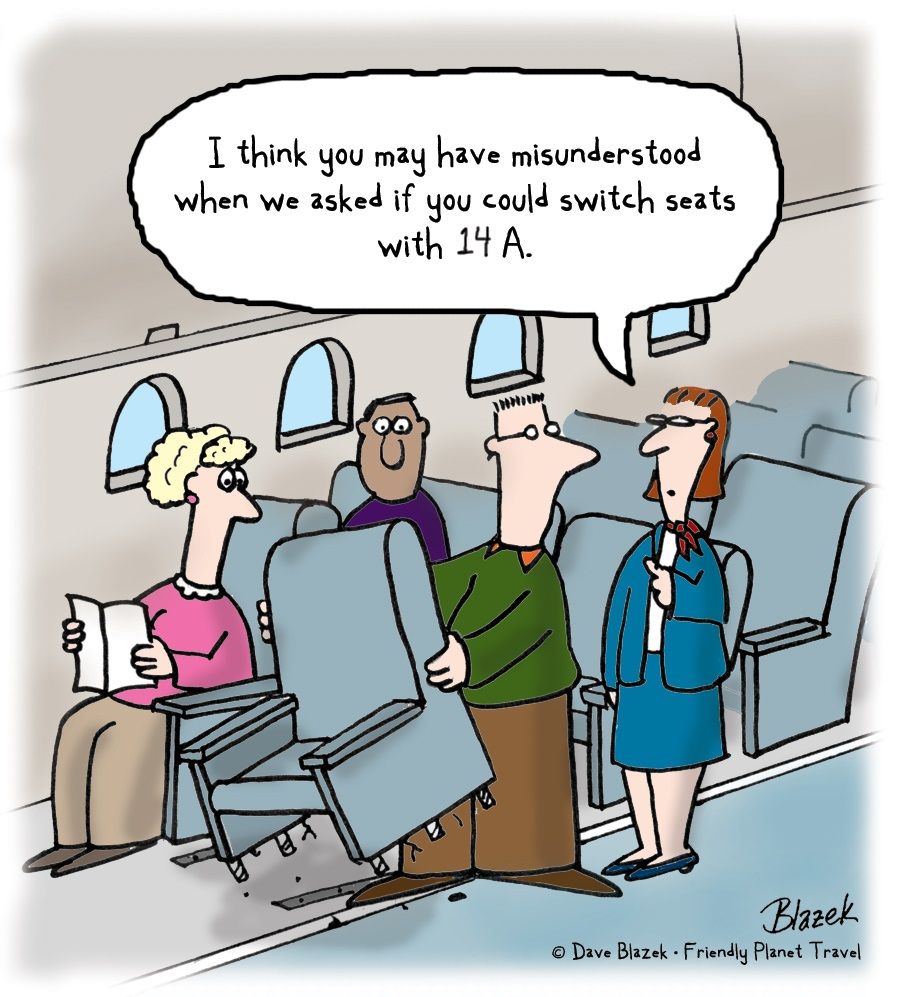 On a recent flight from Seattle to Dallas, the four-hour flight morphed into nine hours sitting on the plane. Thunderstorms in Dallas caused the problem. We circled the airport for hours, flew to Austin to refuel, and finally landed in DFW.
On a recent flight from Seattle to Dallas, the four-hour flight morphed into nine hours sitting on the plane. Thunderstorms in Dallas caused the problem. We circled the airport for hours, flew to Austin to refuel, and finally landed in DFW.
In all my years of flying (I’m a million-miler+ on American) I’ve never heard a pilot do so well at continually informing the passengers during a flight gone bad. About every 20 minutes he gave us a detailed update on what was happening and why. He was empathetic, calm, detailed, and courteous.
I couldn’t help but compare this experience to another flight I was on years ago. We were stuck on the tarmac for three hours but never received an update from the pilot. Tempers flared, rightly so.
Leaders, keep your constituency informed. Not just during emergency situations but all the time. Maintain an informed organization. In her worth-the-read book titled Powerful, Patty McCord (former chief talent officer at Netflix) says:
-
- If your people aren’t informed by you, there’s a good chance they’ll be misinformed by others.
- Ensure that communications flows both ways.
- The job of communication is never done. It’s not an annual or quarterly, or even monthly or weekly function. A steady stream of communication is the lifeblood of competitive advantage.
In my organization, we send a weekly email to everyone involved. It briefly recounts what happened the previous week (with lots of praise for individual contributions), mentions upcoming events, and updates progress on projects. It’s a simple tool that helps maintain an informed organization.
Good and thorough communication is so difficult that the chances of a leader over-communicating are slim—but try anyway.
[reminder]What are your thoughts about this essay?[/reminder]

There’s an old adage “No news is good news.” If everything is going well and there’s nothing much to report, it can be difficult to keep the “gloss” on regular communications. I wonder how many email newsletters just sit unread in inboxes around the globe?
However, there are those who should be answering real urgent requests who think it is better to say nothing than to deliver bad news or a lack of progress. I suspect the pilot who didn’t communicate just hoped the problem would go away. If he couldn’t see or hear the passengers then it wasn’t his problem.
I like to explain why something hasn’t been done but it’s not always received well. The person asking often thinks they might be able to “fix” the hold-up but it may be a problem that effects more than that one person and is out of my control.
Good communication is essential to prevent misunderstandings and upset relationships. Some organisations seem to act as if everything is top secret but, as a consequence, don’t always receive all the input they require to make a rational decision.
There are also those who just prevaricate. They let you know why they haven’t made a decision or pass it on to someone else to deal with. At present I am completely exasperated by supposedly responsible people who just “kick the can down the road”.
Communication is essential for we are part of something much bigger. John Donne put it well:-
No man is an island,
Entire of itself,
Every man is a piece of the continent
Thanks for your post. It’s always thought provoking.
Thank you, Angela, for your well said responses. I love the way you think. Kind regards, Don.
I do enjoy these commentaries bu Don!
Keep ‘em coming!!!
Thanks, Mike.